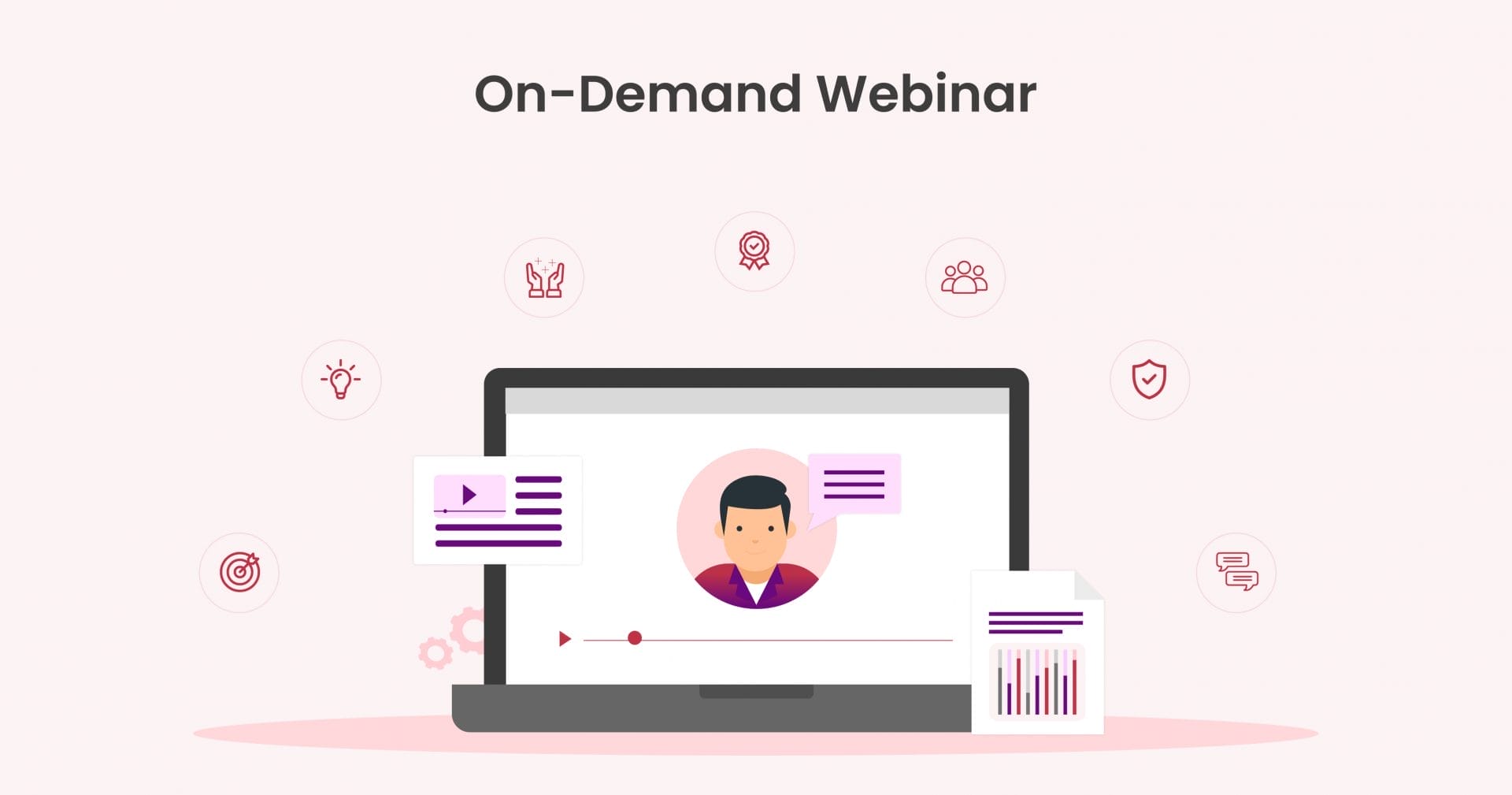Standing out with unique real estate marketing ideas in competitive real estate marketing is vital.
Various methods, such as social media tactics and webinars, can help you attract and, more importantly, keep customers.
One concern you may have is the effectiveness of your marketing efforts and ability to distinguish yourself online. Well, this guide will provide you with practical tips and unique real estate marketing ideas to set yourself apart and increase visibility for your website.
1. Mastering SEO for real estate
Mastering SEO for real estate goes beyond just the generic guidelines. Here is how you can enhance your website’s visibility and credibility using some of the best unique real estate marketing ideas:
- Location-centric keywords: Enhance your keyword research by including specific long-tail and local keywords that connect with your desired audience. Integrate these keywords into your content, metadata, and URLs to achieve the best results.
- Link building: Boost your website’s credibility by building links. Establish connections with reputable websites in your industry, contribute guest articles, and foster relationships to obtain top-notch backlinks that improve your ranking.
- On-site optimization: Make sure your website is not just visually appealing but also optimized for search engines. Prioritize mobile-friendliness, speed, easy navigation, and judicious use of relevant keywords throughout your site.
- High-quality content: Keep your platform dynamic with valuable content tailored to the unique needs of homebuyers, sellers, or renters. For example, you can maintain a steady blog, or create webinars to promote your expertise. Genuinely useful content will help you to establish your authority in the real estate domain.
- Technical SEO: From developing effective sitemaps to enhancing URL structures and integrating schema markup, these technical elements are important for your real estate site.
Marketing to emphasize your expertise
Expertise, an element of Google’s guidelines for valuable content, is essential for SEO, so promoting your skills effectively is important. Building credibility, standing out from competitors, attracting specific clients, and unlocking referral opportunities are essential for success.
Let’s explore the strategies that will highlight your expertise and transform it into a way for you to connect with your audience.
Identifying your niche
Specializing in a specific area makes you an expert, which attracts clients looking for your expertise.
Tailoring your strategies to a specific audience ensures your message resonates, leading to better engagement and conversions. By doing this, you reduce direct competition when you cater to a more defined market segment. But first things first: How do you identify your niche?
Want to use the sheet above to find your niche? Download the editable pdf here: WebinarPress: Finding Your Niche.
Finding your focus requires a careful balance. It should be specific enough to stand out in the market but not so narrow that your audience is too small. Consider demographic trends, personal experience, and market gaps to find a focus that aligns with your strengths and market needs.
Once you’ve identified your specialty, use it for successful marketing. Position yourself as a local expert in your field, offering unique services. Create targeted content that speaks directly to your audience, providing valuable insights.
For example, a real estate agent specializing in family-friendly homes could create a neighborhood guide focusing on school districts. Alternatively, a luxury property expert could share tips on staging high-end homes for maximum profit.
Promoting your expertise with webinar marketing
As we stated above, one of the most important elements for SEO is being able to prove to search engines that you’re creating high-value content. Google uses the acronym E-E-A-T, which stands for Expertise, Experience, Authority and Trustworthiness, to help creators remember the cornerstones of useful digital content.
Webinars are a very SEO-friendly way to prove expertise in a way Google’s search engine crawlers are likely to understand – at least, as long as you properly optimize your landing pages as discussed above.
Take, for example, a real estate agent creating a webinar teaching first-time buyers about red flags to look out for at an open house. This is valuable knowledge for the viewer, and it projects authority and trustworthiness to potential clients. Moreover, this sends strong signals to Google (and other search engines) that when first-time buyers are looking for an agent who can help them navigate the intricacies of home ownership, that website is a valuable resource.
Whether it’s webinars, blog posts, podcast appearances, or any other opportunity to show off your stuff, remember: Try to consider the unique pain points your audience is facing and promote your expertise and services as a solution. The more valuable and unique your content is, the more likely your website is to rise in rankings.
2. Optimizing your website for success
Crafting a strong online presence as a real estate agent starts with optimizing your website for a better user experience. A user-friendly design with a simple layout makes it easy for potential clients to navigate. Since 58.21% of traffic comes from mobile devices, it’s also very important to make your website accessible to all devices.
💎Tip: Make sure your website loads quickly to keep visitors engaged and reduce bounce rates.
Investing in professional photography and drone images
Professional visuals are essential for attracting and retaining potential buyers as they allow you to show each property’s unique features and selling points.
🚁 Don’t risk losing clients with amateur photos, and embrace new drone technology to offer a complete view of the property and its surroundings.
Adding value with valuation tools and 3d-floor plan images
By including a home valuation tool, you can save time for potential buyers and attract high-quality leads to your business, leaving them with a positive first impression.
Enhance the experience further with interactive 3D floor plans, which offer a more detailed and immersive view of the property than traditional 2D plans.
The added depth and realism help visitors envision themselves in the space, leading to increased engagement and a higher chance of moving the visitor down the sales funnel.
3. Maximizing social media platforms
You can use social media platforms like Instagram and Facebook to your advantage, incorporating some creative, unique real estate marketing ideas. Keep your pages up-to-date and make your presence known.
Boosting engagement with Instagram reels and polls
Instagram reels and polls can help you to boost engagement by:
- Showing off property features.
- Building connections.
- Keeping your audience active makes your real estate journey more interactive and enjoyable.
Expanding reach with Facebook groups and advertisements
Use Facebook’s vast user base and precise targeting options to improve your reach. You can do this by:
- Joining Facebook groups to build a community, offer advice, and subtly showcase listings.
- Regularly posting, engaging with users, and sharing high-quality content.
- Targeting a wider audience with Facebook Ads and retargeting previous visitors. Use ad formats like carousel ads and video tours.
4. Making the most of email marketing
Email marketing is a strategy that is not only cost-effective but also allows you to both personalize your communication and measure your success.
By engaging your audience through email, you can keep them informed and connected, regardless of location. Plus, if you use opt-in features, you can ensure legal compliance and build a strong reputation online. Email marketing features include:
Cost-effective
Email marketing is a budget-friendly strategy that offers high returns for real estate agents. It is also free for your potential buyers, who may also be looking to save. You can craft visually appealing emails showing cost-effective property options and incentives. A great tagline for this might be “Discover Budget-Friendly Gems – Your Exclusive List of Affordable Homes!”
Tailored communication
Customize content based on client preferences, highlighting relevant listings and personalized market insights. A personal tagline for this might be “Your Dream Home Awaits – Tailored Listings to Match Your Unique Preferences!”
Measurable insights
Easily track data such as opens, clicks, and conversions to refine your marketing strategies. You can also provide weekly reports summarizing engagement metrics, keeping clients informed about market activity.
Client engagement
Email marketing informs clients with regular updates on listings and market trends. Share market trends, neighborhood updates, and new listings to keep clients engaged and informed.
Global outreach
Reach a wide audience, including local prospects and international investors, through email campaigns. Show off international investment opportunities and local prospects in a single campaign for a broader audience. Try using a tagline like “Invest Smartly – Explore Lucrative Opportunities Globally!”
Opt-in
Gain subscribers through explicit consent, ensuring legal compliance and boosting engagement. “Unlock VIP Access – Subscribe for Exclusive Property Previews!” is a great way to make your clients feel special, as though they are getting something no one else is.
⚠️ Remember: Always follow email marketing laws like CAN-SPAM to maintain integrity and respect consent.
Enhanced engagement and reputation building
Subscribers who actively express interest demonstrate genuine engagement, resulting in higher response rates. You can also cultivate a positive sender reputation to steer clear of spam markings and guarantee the effective delivery of emails.
Respect for privacy
Incorporating opt-in features showcases a commitment to privacy, fostering trust and cultivating a positive image for the agent.
Effective opt-in techniques
Attract visitors to subscribe by offering enticing incentives such as free downloads, consultations, or market analyses.
Essential email marketing tools
Enhance your email marketing efforts with platforms like Mailchimp, Constant Contact, or AWeber to simplify list building and management.
5. Utilizing offline marketing strategies
Although online marketing is extremely valuable, offline marketing strategies remain powerful. They provide distinct benefits, such as fostering personal connections, building trust, and reaching less-engaged audiences with online platforms.
Let’s look at some offline marketing techniques you could use:
Next steps to win more customers in the real estate business
Marketing is essential for any real estate agent looking to improve their revenue. We’ve looked at how:
- SEO boosts online visibility.
- Using social media for wider reach.
- Optimizing your website offers a better user experience.
- Using email marketing improves client engagement.
You put all that effort into marketing and building your brand, so why not capitalize on it through webinars? With the right tools, you can connect with your audience and boost your real estate brand visibility by combining these unique real estate marketing ideas: Download WebinarPress to get started making lead-generating webinars today!








